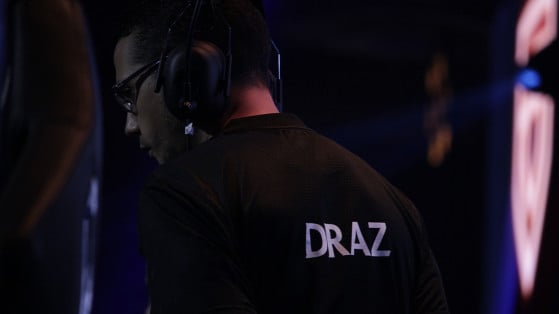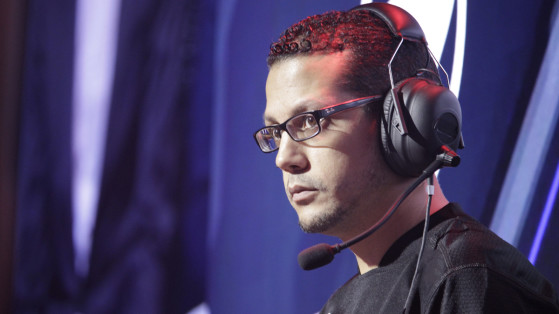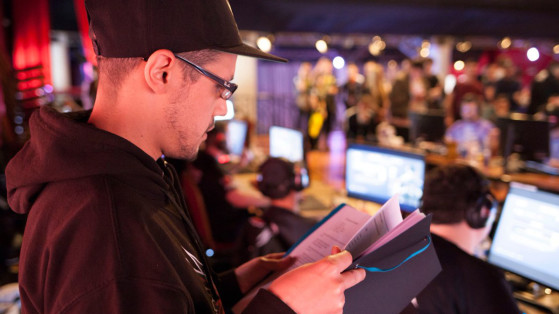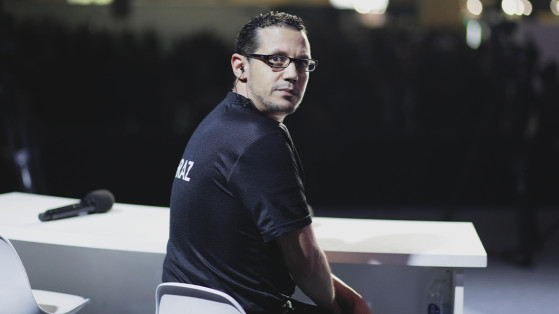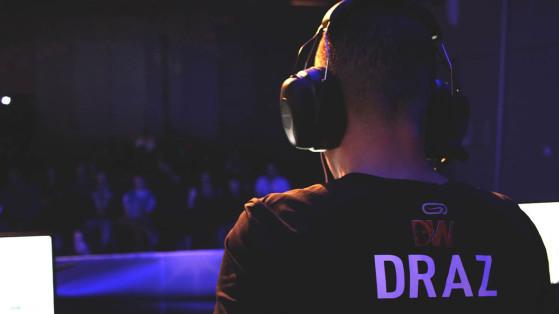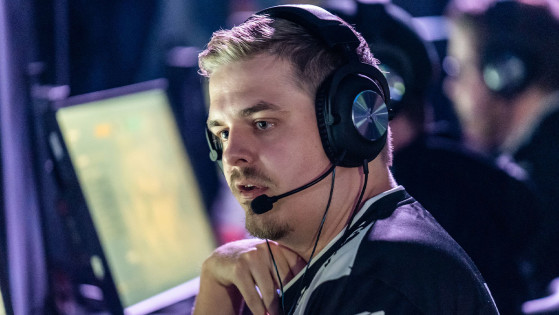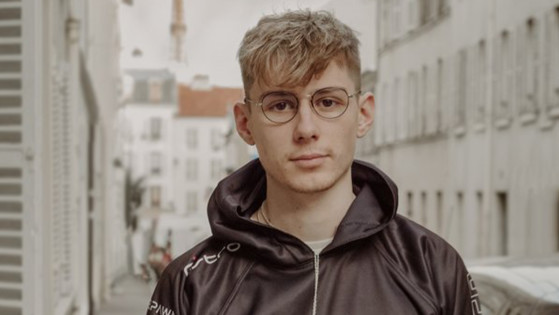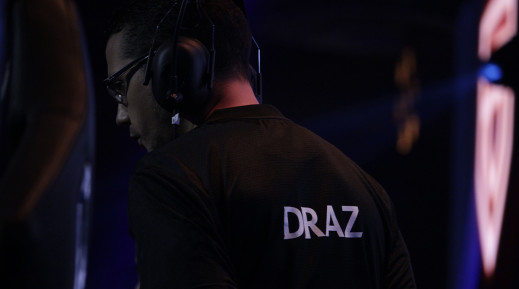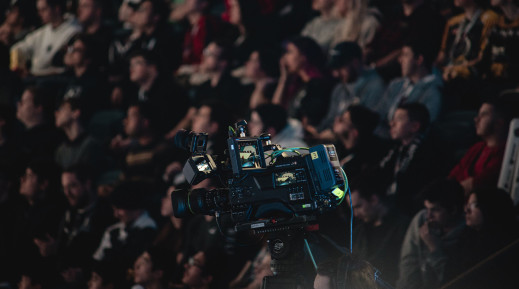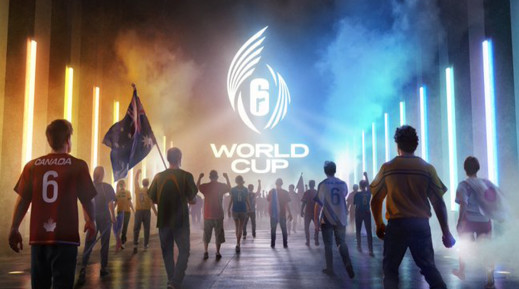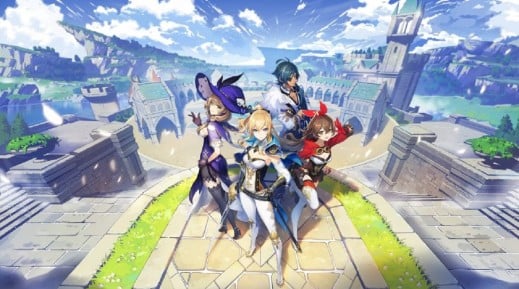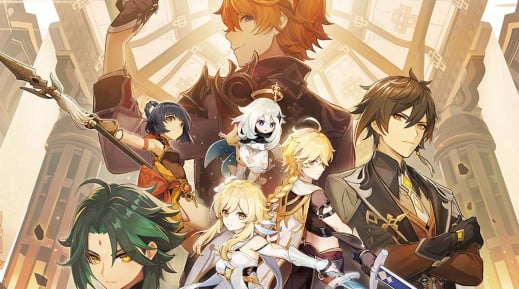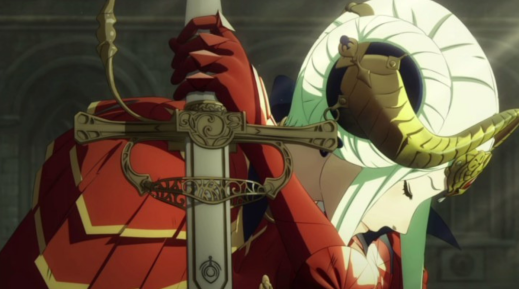You've been part of the Rainbow Six Siege scene since its beginnings, and a unifying voice on subjects such as training. You're perceived by many in the French scene as a "sage". Is this the image you have of yourself?
A little, yes. Because of my age, I know that I have a special place on the scene. (Laughs)
After all, you will soon be in your 40s. Does life experience help you as a coach?
I'd say it's the basis of my job. We coach people before we coach players. I do this partly with the aim of bringing life experience, things that will help in life, and not necessarily only in the game.
Do you have any examples?
You have my experience in the world of nightlife (Razig worked for a long time as a DJ, sometimes in very famous nightclubs, before devoting himself to e-sport, editor's note): the first approaches with the fame, and everything that goes with it. It helps me to give good advice to players, to keep them focused on the right things.
There's also the fact that I've been involved in esports since the early days, being among those who dreamed of becoming a professional. And today it is there. So there's also the experience of the hard ways, of LANs with big screens, of having to sleep under your desk. All of this, of course, helps to put your players in perspective, and prevent them from scattering or wasting time.
What does it look like be an esports coach today?
I would say that it looks a lot like coaching in the traditional sports world. It is mainly the tools or the aspect of the disciplines that will change. But it's mainly the same thing: being behind your players, being present almost around the clock for them, setting up a team life. It's a job that takes up a lot of space in your personal life.
Afterwards, there is still the fact of being less in physical contact with your players, especially during this Covid period, but otherwise it's the same.
So the biggest difference would lie in the physical proximity?
Let's say that esports evolve more in a virtual context. Even if, with more and more bootcamps and staff provided, we tend more and more towards what is done in sport.
Today, we are starting to use the same external professionals as in traditional sports, for example, such as physical trainers, mental coaches, nutritionists, and everything that can help the player to perform.
How did you come to become a coach, when you are not - like some in the field - a graduate in this field?
I've always been captain of my previous teams, and I've had many experiences as a player before. Because of my age, I couldn't really show my face in Rainbow Six Siege, and my past glories on other games are not too visible today, because they date back ten or twenty years, at a time when esports were not, or very little, developed.
But having always been a captain or leader in game, I have always had a professional approach to the search for performance. I watched how the pros did in sports, and I developed the desire to professionalize e-sport players. So I went to the end of this desire, at the perfect time, since e-sport has been developing in this way for a few years now.
As you pointed out earlier, sport is having a more and more important influence on esports, especially intervening more or less directly on the physical and mental health of the players. Do you think it's a good thing to get so much inspiration from sport?
Of course we have something to gain from it. I think it would be silly of us not to get anything out of it. But esports are not sports. In the same way that you don't prepare a soccer player and a tennis player in the same way, I think you have to make sure that you get the right balance.
Today, there is much more psychological stress on an esports player than physical stress. So I think there are many good ideas to borrow from sports to work on the physical part.
At the end of the day, you have to be able to take what you need from sport, and use it in esports. Don't copy everything stupidly, or copy the whole sport model on the esports model, it will never work. But I think we can find a balance between both.
With the increasing 'sportification' of esports, the idea and development of groups of players with substitutes - including the installation of a training and rotation routine in matches - occurs on some stages not used to this operation, such as Counter-Strike. Do you think Rainbow Six Siege could soon follow this trend?
It will depend a lot on Ubisoft. The main reason why I would say 'no' is that at the moment there are not enough competitions. After that, the idea itself is very interesting.
I was telling you about it just before: there is a very strong psychological part when it comes to esports players. Even some former sports professionals who have retrained in the world of e-sport are impressed by the mental mastery and consistency required in this aspect to practice high-level esports.
So yes, I think that at one point having replacements, if it's managed well, that can bring a lot of things. And I don't see why it could be handled well in the world of sport, and not that of esports.
Setting up competitiveness, principles of rest and rotation, room for strategy in addition, this seems to be a key step in the professionalization of collective esports disciplines anyway...
Clearly.
Despite not participating in Majors or a Six Invitational, you've been around the top level of the Rainbow Six for many years — with ups and downs. What does a team need to climb to the elite level? And how can it stay there?
It's good that you mention the ups and downs, because I think the secret is to know how to capitalize on the ups and downs. Somewhere you have to eat your hard bread, you have to know how to work hard. That's what's supposed to give you the anger, instead of using it as an excuse to hide behind.
I think that for a team getting to the top too quickly without having experienced that, it's going to be hard to stay on top. Because the second part of the secret, to stay on top, is to not forget where you come from, to not forget the hardships and the price paid to get where you are.
Never believe that you've reached the end, because you learn every day anyway. So always find a challenge and goals.
And apart from the mental aspect?
First of all, you have to find a balance. Knowing how to get away from cronyism and amateurism. You have to ask yourself the right questions, know what the team needs to move forward. And take the right people: those who are willing to make the sacrifices necessary to go all the way.
For me, the main criteria when you come from the bottom is to surround yourself with the right people. You can make changes along the way, but if you only make changes just because you don't like someone, or someone isn't your friend, you'll never make it to the top. That's obvious.
You are now working in an international project with the powerful Natus Vincere, alongside Cyril "Jahk" Renoud, another French coach. You don't step on too much in terms of organization?
Not at all, we've known each other for a very long time. I was already his coach when he was a player, and already at that time we showed good complementarity. He was a captain, so we had a special relationship, and he already had the fiber of coaching.
And how does English sound to you in the middle of the very pronounced accents of a Saves or a Doki?
We learn every day! (Laughs)
Without exposing your strategy too much, what are your biggest projects at the moment? Integrating Joe, your latest recruit, is one of them I guess?
Yeah, I guess so. Even if we talk a lot about Joe and often forget about Blurr. But yes, there is a lot of work on their integration, even if they both come from the English scene and they already knew the rest of the team more or less well.
So it's not complicated in terms of human integration. It's more on the side of the professional level requirement. Blurr had already worked with the team at the highest level, so he has far fewer problems than Joe, to whom you have to take the whole professional aspect. Everything you have to bring to an 18-year-old who has never played at such a high competitive level.
Apart from that, our biggest task is to renew the team game. During the end of the Stage 2 of the European League we showed that we can be one of the best European teams. So we will continue to work, facing problems such as the health crisis, which means that we have to keep the players fully concentrated. And it's complicated because of the situation…
How do you manage this Covid-19 era?
We organized a bootcamp in September. But unfortunately no member of the staff was able to go there. So we had to manage the players remotely. It went well, but it was not necessarily as impactful as if we were there.
For the rest, we're not going to lie to ourselves: it's very hard to have motivated players with the current period. There's not much to play for - and then again, we have the European League finals coming up - and the lockdown period is difficult for everyone.
You would almost make the Counter-Strike players salivate, as they have too many tournaments to go through...
I think they could give us some, yeah. (Laughs)
If I take the roster of DeathroW, which was playing in the Challenger League at the end of 2018, I see three of the five nicknames that have since become coaches. Spoken at Tempra, Jahk at NAVI, and Kuqus at DeathroW: you apparently provoke vocations...
(Laughs) You'll have to ask them, but I think they already had that fiber when they were players. So, even though I was able to contribute to that, it came naturally.
This is the second time that you have mentioned a “fiber” for coaching. Can you expand on that?
For me, every professional coach must adhere to a code of ethics. So having the fiber means understanding certain things that you have to understand before you can become a coach.
Like what?
Having values to convey. I think it's very important to instill certain values, as I do with my teams. The first one is not to have vanity. You have to differentiate between vanity and pride, because there is a very thin line between both; and vanity can lead to the self-destruction of an individual, or even an entire team. Openness, honesty...
The list is long, and we could talk about it for hours. But we must not forget that we coach above all adults, or children who we must help in their development, and that they must learn to behave as such.
2019 was quite tumultuous for you, with the creation of a new project based on the current Tempra, former pro players, gems like P4, but no salary and very little means to compete with the professional scene.
As you may have pointed out, this was not my first attempt. I've always liked to do this: take a team, build it and take it to the next level. At that time, salaries were present on the stage, but not at home.
Inevitably, in that case, when you have major players who need money to live, it's complicated. Some had to give up their work and put themselves in precarious conditions, others had to link work and esports. It's quite an adaptation to apply, at the level of planning, at the level of psychology. It's very hard, but at the same time it gives a goal.
So, can we therefore say that it is the lack of means that forced you to undertake and optimize your training to survive in the field, and finally reach the summit afterwards?
I think that's one of the reasons, yes. At some point, when you work all day in your regular job, come home and go back to a "second" day of work, it's ultra wearisome.
So when one day you can let go of your “food work” to get paid to do something you love, you get a certain pride. Everything changes in your life, and you don't want to go back. That's usually what keeps you on top afterwards. And if you apply that to almost a whole team, going through this kind of thing, you can see why you end up with a tight-knit Tempra team that hasn't moved very much.
We know that behind the scenes you work on the development of the French Rainbow Six Siege scene. What does it need to become properly professional?
First: professionals. Of course they have to be. I think we're lucky in France to have a lot of talent. In terms of coaching them, I would say that the actors who can set things up are today too focused on competition. The ecosystem has not necessarily been built in the best possible way, and I think that there are essential steps that have not been implemented.
As a result, young players, or nascent esports enthusiasts, don't necessarily understand what it takes to become a professional, apart from getting paid. I'll be very honest: I think that too many of the present actors want to skip these steps. Like clubs that are going to say "I want a player to be a professional, I'm going to take him and give him two months to behave like one" and if he doesn't, too bad for him.
So there is a problem in terms of training?
With esports, we are dealing with a model that is initially professionalized by the top. We were talking about physical and mental trainers, we realize that there will be more and more need for this. But it's something we're having a hard time passing on to the grassroots level.
We'll take the example of an average or associative org: if I tell it that it has to act as if it were at the top by employing a physical or mental trainer for the well-being of its players, its first problem will be financial. Whereas we could overcome this financial problem by creating partnerships, for example.
Today most partnerships are too often fueled by business. Not enough on the socio-formative side. There are too many business-oriented actors in esports today. And this is normal somewhere, since people are not there to sort out beads; they are there to earn money and live from it.
But according to you, there are not enough communicating vessels between the top and the grassroots, to help economically the development of future talents?
Exactly. I'll give a concrete example. Let's say that today you are launching into the formation of a team with professional objectives, with all the problems linked to 17 or 18 year olds, especially in France where, from the amateur scene to the semi-professional, you find a lot of toxicity, you need to have someone capable of taking on the role of educator, bootcamps to facilitate relationships... (Pauses)
A small organization, even with the best will in the world, will have the problem of not being able to organize a bootcamp, and not having the means to afford a competent staff to ensure a certain framework around its players and coaches. However, you have in France competent staff, voluntary moreover. But it is necessary to be able to set it up, and financially it is today impossible for a small organization.
It's going to be complicated...
Let's say the top might be able to provide what it takes. But it doesn't work that way yet, because there's still too much business thinking on that side of the fence. Now, there are still things that are developing, and I think we're on the right track. You have to be patient...
In your wake, there's your “baby”, DeathroW, who could be one of those things in development. Right now, there is a very young main team trying to qualify for the 6 French League, and an "academic" team that is already preparing the next generation. Do you think that this model will be viable in the long term and that we will see great talent come out of it?
The organization has proven that it is capable of producing professional players (Ed: the current Tempra). It has already done so and today, as a pro coach at NaVi, I see the problem of having to bring players the basics that should have been brought to them from the beginning.
So I see the advantage of having a grassroots organization capable of bringing you a player with whom you will be able to work in depth right away. A player you won't need to teach to be on time, for example.
I think the first thing young people learn at DeathroW is how to behave and be a good mate. All the teams will tell you that the problem of finding a good player does not necessarily lie only in the level of play - even if it is of course the basis - but also and above all in the behavior and mentality.
Speaking of mentality, which player under your coaching has impressed you the most so far?
Difficult to answer. (Laughs) Because I want to tell you P4 in relation to his ability to lead while playing entry, and also his maturity. But I also want to tell you Saves, in relation to his speed of thought, his decision taking. And then there's SpokeN at the time, capable of being a metronome in a team thanks to his game science.
And the biggest disappointment?
Meechy (ex-Team Oplon, in Pro League). I think he's a very smart guy, who needs to express that intelligence, and he himself feels he could do a lot more. He's always taken the game seriously, but he could have done a lot more and made it to the top. I think he asked himself too many questions...
It's hard to explain, especially since people don't necessarily know him better than that, but he had a lot of potential.
We'll soon know the coaches of the French Rainbow Six Siege team for its future World Cup. Do we have a chance to see you in it?
No, because I didn't apply.
There are other ways to be brought to take over this position, such as the community vote, or that of the pros...
I think we're lucky in France to have a lot of people who are eligible for the position. Maybe even too many, which sets us a little apart from other nations. As for the selection of the coaches, I would have preferred something more unifying. There are a lot of competent staff and we get along rather well.
What's a pity with the votes is that it puts us all, on the contrary, in a competition that has no reason to be. Although I can understand Ubisoft's decision. I support the project wholeheartedly, I would support the selectors who will be chosen and I'm not worried about the quality of them.
Can you see yourself continuing to coach in Rainbow Six for the rest of your life if the esports side of the game allows it?
We are only at the dawn of what esports can offer. I don't see myself coaching for the rest of my life, because it requires a lot of effort and good heart condition. (Laughs) It's a lot of stress.
So at some point I might want to take on a cooler role. But right now I still have the desire, the energy. When I don't have that energy anymore, we'll see. But I function a lot on instinct. So it will surely be according to the evolution of esports. Afterwards, I think it will always be linked to bringing something to the young people.
For example, linking social and esports with associations for young people in difficulty?
(Thinks) Yeah, there's a good chance. Then if you want to draw a parallel with the position of national coach, I would see myself more as a coach of the U20s. (Laughs)
Where does this desire to help young people come from? Because you grew up in an underprivileged area of Vienne, near the city of Lyon?
That's it. But I also think I was lucky enough to have parents who always helped me and were always considerate with me. Especially through religion, they passed on to me many values of sharing.
What fuels my desire to help young people in particular? I think it's clearly the fact that I lost my mom just under a year before I started my career in Rainbow Six Siege. I had already lost my father, so I no longer had my parents. And I think that fueled this need to help young people.
Now I have the case of my parents being gone, but you can very well end up with kids who just don't have their parents' support anymore. So helping them fill that gap... It's kind of exorcising a little bit the fact that I don't have mine anymore, I think. (Smiles)
Photos: F. "R3siak" Kaiser
